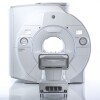AHA: Protect Patient Access to Inpatient Rehab
by Barbara Kram, Editor | March 19, 2007

AHA supports legislation
to standardize rules that
now restrict hospital rehab
to standardize rules that
now restrict hospital rehab
Statement of
Rick Pollack
Executive Vice President, AHA
On the Preserving Patient Access to
Inpatient Rehabilitation Act (HR 1459; S543):
The legislation introduced in the House and Senate is an important step in protecting patient access to inpatient rehabilitation facilities (IRFs). It would freeze the so-called "75% Rule" at its current 60 percent threshold and standardize medical necessity definitions to help put care decision back in the hands of physicians.
Under the 75% Rule, a rehabilitation hospital must satisfy several criteria in order to qualify as an IRF. Newer rehabilitation specialties such as cardiac, pulmonary, pain and cancer are not included in the qualifying criteria. And as the 75% Rule continues to be implemented, more patients are finding that their access to this highly specialized model of care is being restricted. Data show that in the first two years since the Rule's implementation, at least 88,000 patients lost access to IRF care.
Rehabilitative care is intended to treat what are often a hospital's most vulnerable patients, usually admitted with multiple conditions and in need of intensive therapy. Inpatient rehabilitation facilities specialize in addressing these complex health care needs efficiently and effectively, helping patients return home to normal, functional activities more quickly than through other modes of treatment.
Health decisions should be left in the hands of doctors, nurses and other caregivers, not made through an arbitrary quota system. We support this legislation which protects access to rehab care for many Americans. And we applaud Sens. Nelson, Bunning, Stabenow, Snowe, Kerry, Collins, Reed, Clinton and Menedez, as well as Reps. Tanner, Hulshof, Lowey and LoBiondo for working to make certain that rehab patients are receiving the care they need in the most appropriate setting.
About AHA
The American Hospital Association (AHA) is a not-for-profit association of health care provider organizations and individuals that are committed to the health improvement of their communities. The AHA is the national advocate for its members, which includes more than 5,000 hospitals, health care systems, networks, and other providers of care, and 37,000 individuals. Founded in 1898, the AHA provides education for health care leaders and is a source of information on health care issues and trends. For more information, visit the AHA Web site at www.aha.org.
Rick Pollack
Executive Vice President, AHA
On the Preserving Patient Access to
Inpatient Rehabilitation Act (HR 1459; S543):
The legislation introduced in the House and Senate is an important step in protecting patient access to inpatient rehabilitation facilities (IRFs). It would freeze the so-called "75% Rule" at its current 60 percent threshold and standardize medical necessity definitions to help put care decision back in the hands of physicians.
Under the 75% Rule, a rehabilitation hospital must satisfy several criteria in order to qualify as an IRF. Newer rehabilitation specialties such as cardiac, pulmonary, pain and cancer are not included in the qualifying criteria. And as the 75% Rule continues to be implemented, more patients are finding that their access to this highly specialized model of care is being restricted. Data show that in the first two years since the Rule's implementation, at least 88,000 patients lost access to IRF care.
Rehabilitative care is intended to treat what are often a hospital's most vulnerable patients, usually admitted with multiple conditions and in need of intensive therapy. Inpatient rehabilitation facilities specialize in addressing these complex health care needs efficiently and effectively, helping patients return home to normal, functional activities more quickly than through other modes of treatment.
Health decisions should be left in the hands of doctors, nurses and other caregivers, not made through an arbitrary quota system. We support this legislation which protects access to rehab care for many Americans. And we applaud Sens. Nelson, Bunning, Stabenow, Snowe, Kerry, Collins, Reed, Clinton and Menedez, as well as Reps. Tanner, Hulshof, Lowey and LoBiondo for working to make certain that rehab patients are receiving the care they need in the most appropriate setting.
About AHA
The American Hospital Association (AHA) is a not-for-profit association of health care provider organizations and individuals that are committed to the health improvement of their communities. The AHA is the national advocate for its members, which includes more than 5,000 hospitals, health care systems, networks, and other providers of care, and 37,000 individuals. Founded in 1898, the AHA provides education for health care leaders and is a source of information on health care issues and trends. For more information, visit the AHA Web site at www.aha.org.









